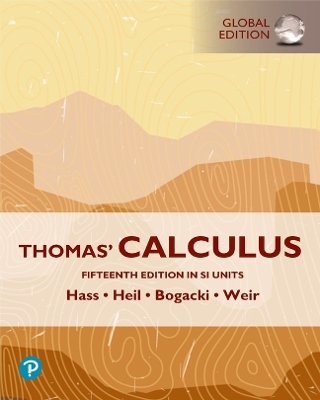
Advanced Markov Chain Monte Carlo Methods – Learning From Past Samples
Wiley-Blackwell (Hersteller)
978-0-470-66972-3 (ISBN)
- Keine Verlagsinformationen verfügbar
- Artikel merken
Markov Chain Monte Carlo (MCMC) methods are now an indispensable tool in scientific computing. This book discusses recent developments of MCMC methods with an emphasis on those making use of past sample information during simulations. The application examples are drawn from diverse fields such as bioinformatics, machine learning, social science, combinatorial optimization, and computational physics. Key Features: * Expanded coverage of the stochastic approximation Monte Carlo and dynamic weighting algorithms that are essentially immune to local trap problems. * A detailed discussion of the Monte Carlo Metropolis-Hastings algorithm that can be used for sampling from distributions with intractable normalizing constants. * Up-to-date accounts of recent developments of the Gibbs sampler. * Comprehensive overviews of the population-based MCMC algorithms and the MCMC algorithms with adaptive proposals. This book can be used as a textbook or a reference book for a one-semester graduate course in statistics, computational biology, engineering, and computer sciences. Applied or theoretical researchers will also find this book beneficial.
Faming Liang, Associate Professor, Department of Statistics, Texas A&M University. Chuanhai Liu, Professor, Department of Statistics, Purdue University. Raymond J. Carroll, Distinguished Professor, Department of Statistics, Texas A&M University.
Preface. Acknowledgments. Publisher's Acknowledgments. 1 Bayesian Inference and Markov Chain Monte Carlo. 1.1 Bayes. 1.1.1 Specification of Bayesian Models. 1.1.2 The Jeffreys Priors and Beyond. 1.2 Bayes Output. 1.2.1 Credible Intervals and Regions. 1.2.2 Hypothesis Testing: Bayes Factors. 1.3 Monte Carlo Integration. 1.3.1 The Problem. 1.3.2 Monte Carlo Approximation. 1.3.3 Monte Carlo via Importance Sampling. 1.4 Random Variable Generation. 1.4.1 Direct or TransformationMethods. 1.4.2 Acceptance-Rejection Methods. 1.4.3 The Ratio-of-UniformsMethod and Beyond. 1.4.4 Adaptive Rejection Sampling. 1.4.5 Perfect Sampling. 1.5 Markov ChainMonte Carlo. 1.5.1 Markov Chains. 1.5.2 Convergence Results. 1.5.3 Convergence Diagnostics. Exercises. 2 The Gibbs Sampler. 2.1 The Gibbs Sampler. 2.2 Data Augmentation. 2.3 Implementation Strategies and Acceleration Methods. 2.3.1 Blocking and Collapsing. 2.3.2 Hierarchical Centering and Reparameterization. 2.3.3 Parameter Expansion for Data Augmentation. 2.3.4 Alternating Subspace-Spanning Resampling. 2.4 Applications. 2.4.1 The Student-tModel. 2.4.2 Robit Regression or Binary Regression with the Student-t Link. 2.4.3 Linear Regression with Interval-Censored Responses. Exercises. Appendix 2A: The EMand PX-EMAlgorithms. 3 The Metropolis-Hastings Algorithm. 3.1 TheMetropolis-Hastings Algorithm. 3.1.1 Independence Sampler. 3.1.2 RandomWalk Chains. 3.1.3 Problems withMetropolis-Hastings Simulations. 3.2 Variants of theMetropolis-Hastings Algorithm. 3.2.1 The Hit-and-Run Algorithm. 3.2.2 The Langevin Algorithm. 3.2.3 TheMultiple-TryMH Algorithm. 3.3 Reversible Jump MCMC Algorithm for Bayesian Model Selection Problems. 3.3.1 Reversible JumpMCMC Algorithm. 3.3.2 Change-Point Identification. 3.4 Metropolis-Within-Gibbs Sampler for ChIP-chip Data Analysis. 3.4.1 Metropolis-Within-Gibbs Sampler. 3.4.2 Bayesian Analysis for ChIP-chip Data. Exercises. 4 Auxiliary Variable MCMC Methods. 4.1 Simulated Annealing. 4.2 Simulated Tempering. 4.3 The Slice Sampler. 4.4 The Swendsen-Wang Algorithm. 4.5 TheWolff Algorithm. 4.6 The Mo/ller Algorithm. 4.7 The Exchange Algorithm. 4.8 The DoubleMH Sampler. 4.8.1 Spatial AutologisticModels. 4.9 Monte CarloMH Sampler. 4.9.1 Monte CarloMH Algorithm. 4.9.2 Convergence. 4.9.3 Spatial AutologisticModels (Revisited). 4.9.4 Marginal Inference. 4.10 Applications. 4.10.1 AutonormalModels. 4.10.2 Social Networks. Exercises. 5 Population-Based MCMC Methods. 5.1 Adaptive Direction Sampling. 5.2 Conjugate GradientMonte Carlo. 5.3 SampleMetropolis-Hastings Algorithm. 5.4 Parallel Tempering. 5.5 EvolutionaryMonte Carlo. 5.5.1 Evolutionary Monte Carlo in Binary-Coded Space. 5.5.2 EvolutionaryMonte Carlo in Continuous Space. 5.5.3 Implementation Issues. 5.5.4 Two Illustrative Examples. 5.5.5 Discussion. 5.6 Sequential Parallel Tempering for Simulation of High Dimensional Systems. 5.6.1 Build-up Ladder Construction. 5.6.2 Sequential Parallel Tempering. 5.6.3 An Illustrative Example: the Witch s Hat Distribution. 5.6.4 Discussion. 5.7 Equi-Energy Sampler. 5.8 Applications. 5.8.1 Bayesian Curve Fitting. 5.8.2 Protein Folding Simulations: 2D HPModel. 5.8.3 Bayesian Neural Networks for Nonlinear Time Series Forecasting. Exercises. Appendix 5A: Protein Sequences for 2D HPModels. 6 Dynamic Weighting. 6.1 DynamicWeighting. 6.1.1 The IWIWPrinciple. 6.1.2 Tempering DynamicWeighting Algorithm. 6.1.3 DynamicWeighting in Optimization. 6.2 DynamicallyWeighted Importance Sampling. 6.2.1 The Basic Idea. 6.2.2 A Theory of DWIS. 6.2.3 Some IWIWp Transition Rules. 6.2.4 Two DWIS Schemes. 6.2.5 Weight Behavior Analysis. 6.2.6 A Numerical Example. 6.3 Monte Carlo Dynamically Weighted Importance Sampling. 6.3.1 Sampling from Distributions with Intractable Normalizing Constants. 6.3.2 Monte Carlo Dynamically Weighted Importance Sampling. 6.3.3 Bayesian Analysis for Spatial Autologistic Models. 6.4 Sequentially Dynamically Weighted Importance Sampling. Exercises. 7 Stochastic Approximation Monte Carlo. 7.1 MulticanonicalMonte Carlo. 7.2 1/k-Ensemble Sampling. 7.3 TheWang-Landau Algorithm. 7.4 Stochastic ApproximationMonte Carlo. 7.5 Applications of Stochastic ApproximationMonte Carlo. 7.5.1 Efficient p-Value Evaluation for Resampling-Based Tests. 7.5.2 Bayesian Phylogeny Inference. 7.5.3 Bayesian Network Learning. 7.6 Variants of Stochastic ApproximationMonte Carlo. 7.6.1 Smoothing SAMC forModel Selection Problems. 7.6.2 Continuous SAMC for Marginal Density Estimation. 7.6.3 Annealing SAMC for Global Optimization. 7.7 Theory of Stochastic ApproximationMonte Carlo. 7.7.1 Convergence. 7.7.2 Convergence Rate. 7.7.3 Ergodicity and its IWIWProperty. 7.8 Trajectory Averaging: Toward the Optimal Convergence Rate. 7.8.1 Trajectory Averaging for a SAMCMC Algorithm. 7.8.2 Trajectory Averaging for SAMC. 7.8.3 Proof of Theorems 7.8.2 and 7.8.3. Exercises. Appendix 7A: Test Functions for Global Optimization. 8 Markov Chain Monte Carlo with Adaptive Proposals. 8.1 Stochastic Approximation-Based Adaptive Algorithms. 8.1.1 Ergodicity andWeak Law of Large Numbers. 8.1.2 AdaptiveMetropolis Algorithms. 8.2 Adaptive IndependentMetropolis-Hastings Algorithms. 8.3 Regeneration-Based Adaptive Algorithms. 8.3.1 Identification of Regeneration Times. 8.3.2 Proposal Adaptation at Regeneration Times. 8.4 Population-Based Adaptive Algorithms. 8.4.1 ADS, EMC, NKC andMore. 8.4.2 Adaptive EMC. 8.4.3 Application to Sensor Placement Problems. Exercises. References. Index.
| Erscheint lt. Verlag | 7.7.2010 |
|---|---|
| Verlagsort | Hoboken |
| Sprache | englisch |
| Maße | 152 x 229 mm |
| Gewicht | 666 g |
| Themenwelt | Mathematik / Informatik ► Mathematik ► Analysis |
| ISBN-10 | 0-470-66972-1 / 0470669721 |
| ISBN-13 | 978-0-470-66972-3 / 9780470669723 |
| Zustand | Neuware |
| Haben Sie eine Frage zum Produkt? |
aus dem Bereich

